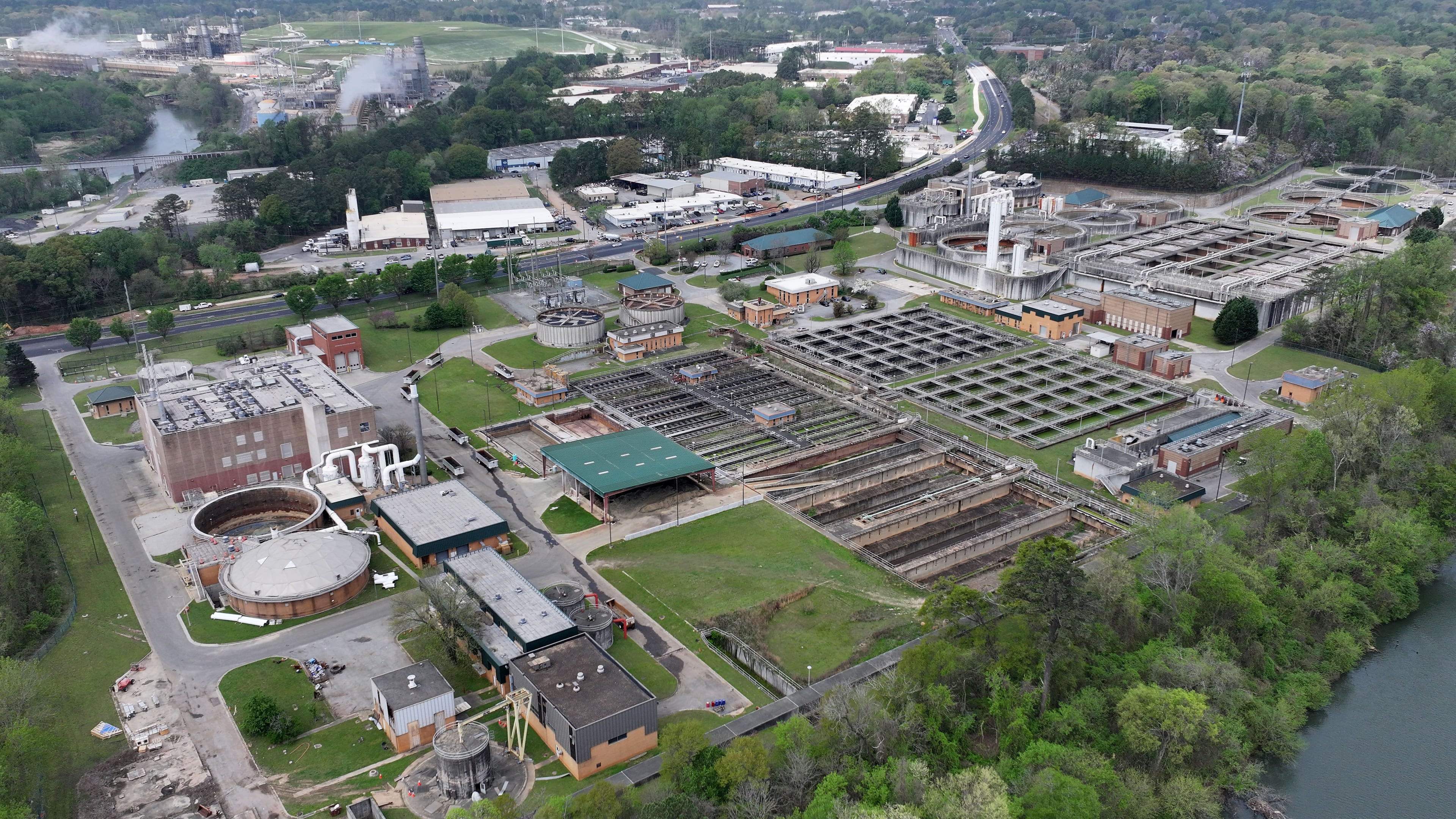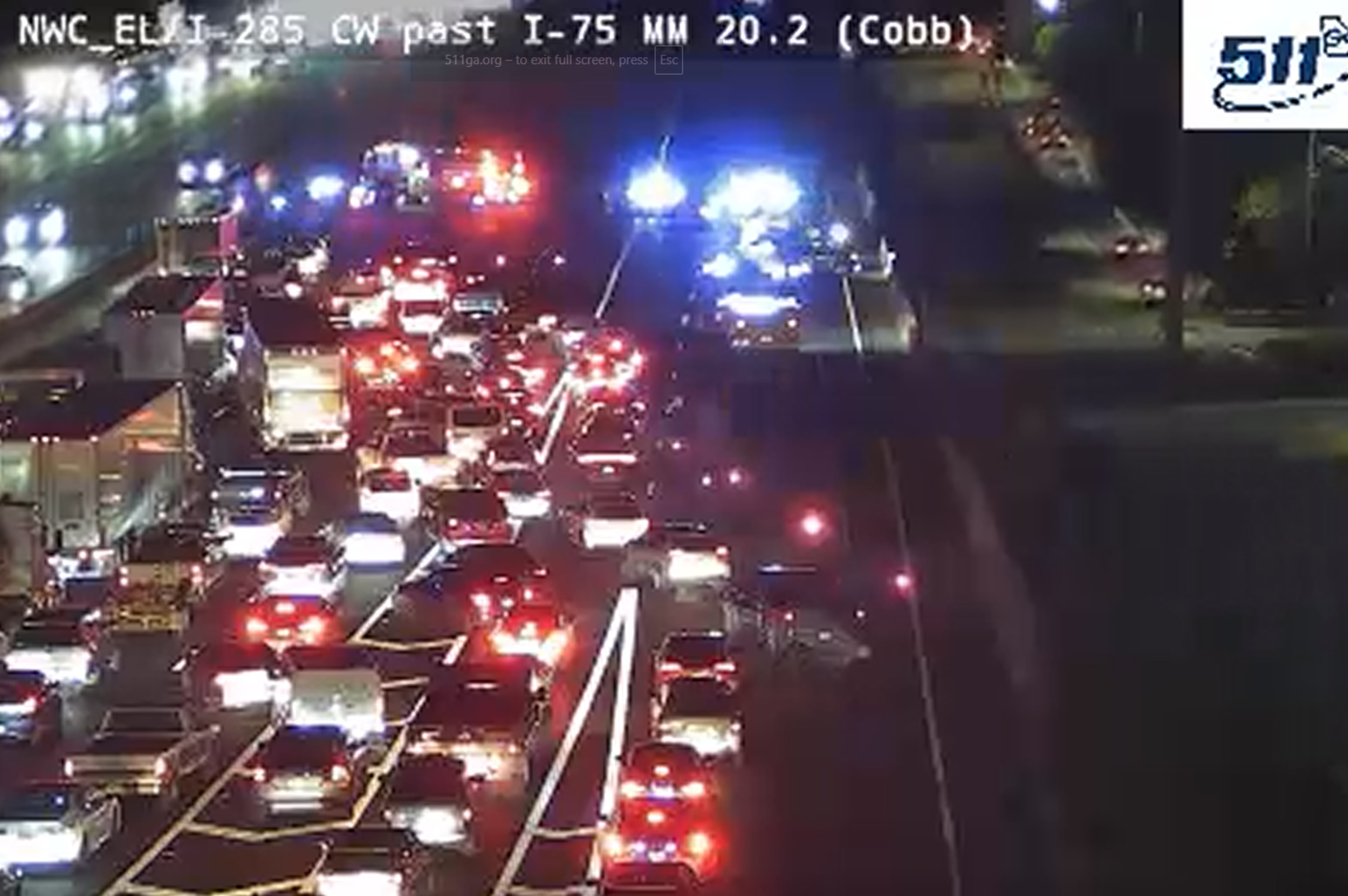Vinings residents concerned about air quality from sludge incinerators

Vinings residents expressed anxiety about their air quality Monday night as Cobb County officials presented a plan to restart two biosolids incinerators in their neighborhood along the Chattahoochee River.
About 120 people packed the Cochise Club for the annual meeting of the Vinings Village Homeowners Association, a voluntary organization for the 1,200 households in the affluent area across the river from Buckhead. Many peppered the county’s delegation with questions about incinerator emissions, monitoring procedures and possible community impacts.
Biosolids, also known as sewage sludge, are the solid byproducts of the wastewater treatment process: human waste that is physically and chemically treated to reduce moisture. At Cobb County’s R.L. Sutton Water Reclamation Facility, one of the largest wastewater treatment plants in metro Atlanta, biosolids were incinerated for 34 years until 2016, when federal Clean Air Act standards tightened.
For the past nine years, Cobb County has instead contracted truckers to haul the biosolids to landfills, but metro Atlanta’s landfills are running out of space and the cost to the county has quadrupled as the truckers are forced to take the waste to Alabama or Tennessee.
County officials now say restarting the two incinerators at R.L. Sutton and upgrading them to meet current standards — a $70 million project — would pay for itself after 10 years. They propose having the incinerators operational again in four years.
The incinerators have filters that absorb mercury. U.S. Environmental Protection Agency regulations impose strict limits on mercury and several other chemicals in incinerator exhaust, including carbon monoxide, oxides of nitrogen and lead.
Mercury is not believed to cause cancer, but mercury poisoning can cause a number of health problems including memory loss and impaired movement, speech, hearing and peripheral vision.
Some residents complained the project would worsen air quality in an area that also contains the Sterigenics medical sterilization plant, a waste transfer station and Atlanta’s R.M. Clayton Water Reclamation Plant, which operates two biosolids incinerators. County officials said they did not know if or how the combined impact of all those facilities would be monitored.
“I understand the problem,” said Melissa Koontz, an area resident whose children are 2 and 5 years old. “I just feel like they spoke about cost and not about the air and what it’s doing to the community.”
The project is still in the concept stage because the county has not yet contracted anyone to design it, officials said.
The county plans to require that contractors design and refurbish the incinerators so chemical emissions are less than 75% of the legal maximum, said Peter Burrowes, a consultant from the Jacobs engineering firm.
Two operators are on duty at any given time of day or night to monitor the incinerators, said Cobb Water Protection Manager Michael Reddick, who operated them for 14 years. If equipment malfunctions, the operators receive alarms on their computer screens, he said. If they do not take corrective action, the system shuts down, he said.
The county must reapply for construction and operations permits for the incinerators. The Georgia Environmental Protection Division will hold a public comment period as part of the operations permitting process.
District 2 County Commissioner Erick Allen attended the meeting hours after being sworn in, as his first official action. The County Commission must approve the project by voting on the design and construction contracts. Allen said he wanted to reserve an opinion until he learns more.
Diesel emissions would be reduced if the incinerators reopen because there would be fewer trucks in the area to haul the biosolids to landfills, Reddick said.
The state of Georgia limited the amount of biosolids which landfills could accept four years ago, after collapses in Forsyth and Cherokee counties because the moist material destabilized them. Now, many water utilities are facing the same problem, officials said.
“It’s getting harder and harder to find places to take it, and we’re worried we’re going to get where we’re not going to have anywhere to take it, and we’re going to have trucks of biosolids just sitting in the plant and nowhere to go with them,” Cobb County Water System Director Judy Jones said. “It’s not just a cost issue.”



